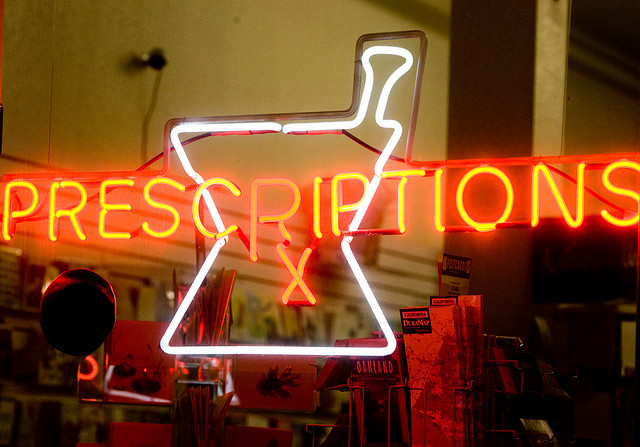By Diane Rey
For Maryland Reporter
Maryland delegates are pushing back against high prescription drug costs, but their proposal stops short of setting drug price caps for all Marylanders.
Instead, the House of Delegates advanced a proposal Tuesday that will limit what the state will pay for the prescription drugs of state and local government workers and institutions.
HB768 would establish a Prescription Drug Affordability Board – the first in the nation — to establish upper limits on payment for high-cost medication with the aim of reducing costs.
Though originally intended to cover all Marylanders, the bill was scaled back and heavily amended in the Health and Government Operations Committee, gaining the committee’s approval Friday by a vote of 19-3.
“The goal of the board is to make drugs the most affordable they can be,” said Del. Bonnie Cullison, D-Montgomery, chair of the Insurance and Pharmaceuticals Subcommittee, in describing the bill on the House floor. Del. Joseline Pena-Melnyk, D-Prince George’s and Anne Arundel, is the lead sponsor. It’s cross-filed in the Senate as SB0759, with Sen. Katherine Klausmeier, D-Baltimore County, as lead sponsor.
The sponsors explained their position in an opinion piece published Feb. 21 in Maryland Reporter.
Concerns raised about price control, access to medicine
In Tuesday’s House debate, Del. Mark Fisher, R-Calvert, charged that the legislation amounts to “price control.”
Cullison countered: “We’re not telling the pharmaceutical company what they can charge. We’re telling them what Maryland will pay.”
Fisher also questioned how the board would determine whether a drug was affordable or not. “My concern is that affordability may change from year to year based on the state’s deficit,” he said.
Cullison answered, “The beauty of the board is that it’s constantly being charged to evaluate its decisions.”
The bill caused spirited debate, with Del. Eric Luedtke, D-Montgomery, objecting against Fisher for interrupting.
Delegates rejected two Republican-sponsored amendments, including one proposal that would nix the idea of a new board and instead follow New Jersey’s lead in contracting with a pharmacy benefits manager to oversee the state’s prescription drug program.
The bill also advanced despite an objection that manufacturers may charge more to private sector patients in order to make up for state government paying less.
Board to look at high-cost medicine
The bill gives the board authority to review the cost of brand name drugs that have a launch or acquisition cost of $30,000 or more a year, existing brands that increase in price by $3,000 or more per year or course of treatment and generic drugs that increased in price by 200% or more in a year.
The bill budgets $617,300 from general funds in FY2020 to establish the board and implement the bill. Funding in future years would come from an annual assessment on drug manufacturers, according to the fiscal note.
The board would be made up of five appointed members with expertise in health care economics or clinical medicine. One each would be appointed by the governor, the president of the Senate, the speaker of the House of Delegates, and the attorney general; and one appointed jointly by the president of the Senate and the speaker of the House of Delegates, who must serve as chair.
The board would have the authority to evaluate drugs purchased by a unit of state or local government or an organization on behalf of a unit of state or local government, including state hospitals, state or county correctional facilities, and health clinics at state institutions of higher education. It would also include drugs paid for by a health benefit plan for state or local employees.
Cullison estimated it would affect 110,000 government employees and their families, for a total of 250,000-300,000 people.
Amendments on the floor fail
Del. Christopher Adams, a Republican who represents Caroline, Dorchester, Talbot, and Wicomico counties, said he was concerned the legislation would lead to increased drug prices for private sector employees. He introduced an amendment that would require the state to contract with a pharmacy benefits manager to oversee the state’s prescription drug program. He said the amendment was modeled after a program in New Jersey that has resulted in a savings of $1.6 billion to the state. “That’s 18% of their drug expenses over a three-year period,” he said.
“The current bill is unprecedented in the nation,” he said, questioning its constitutionality. “You’re trying to take the state’s regulatory authority and preempt federal authority. You can’t do that,” he said. “These companies operate in a free market environment…It would be easier for a business to say I won’t do business in Maryland.”
His amendment failed by a vote of 39-95.
Del. Daniel Cox, a Republican representing Frederick and Carroll counties, proposed an amendment that would have allowed someone who was denied a prescription drug by the board to pay market cost to receive it.
Cullison responded that “under no circumstances would the board be denying medication.” She said paying market price is an option under the bill if insurance will not cover the cost of a drug.
That amendment failed by a vote of 40-93.
The bill now moves on to a third and final reading and vote in the House.
Last year, a similar bill, HB1194, passed the House with amendments and received a favorable report from the Senate Finance Committee on the last day of the General Assembly’s session, but no further action was taken. Its cross-filed bill, SB1023, did not advance beyond a committee hearing.



Recent Comments